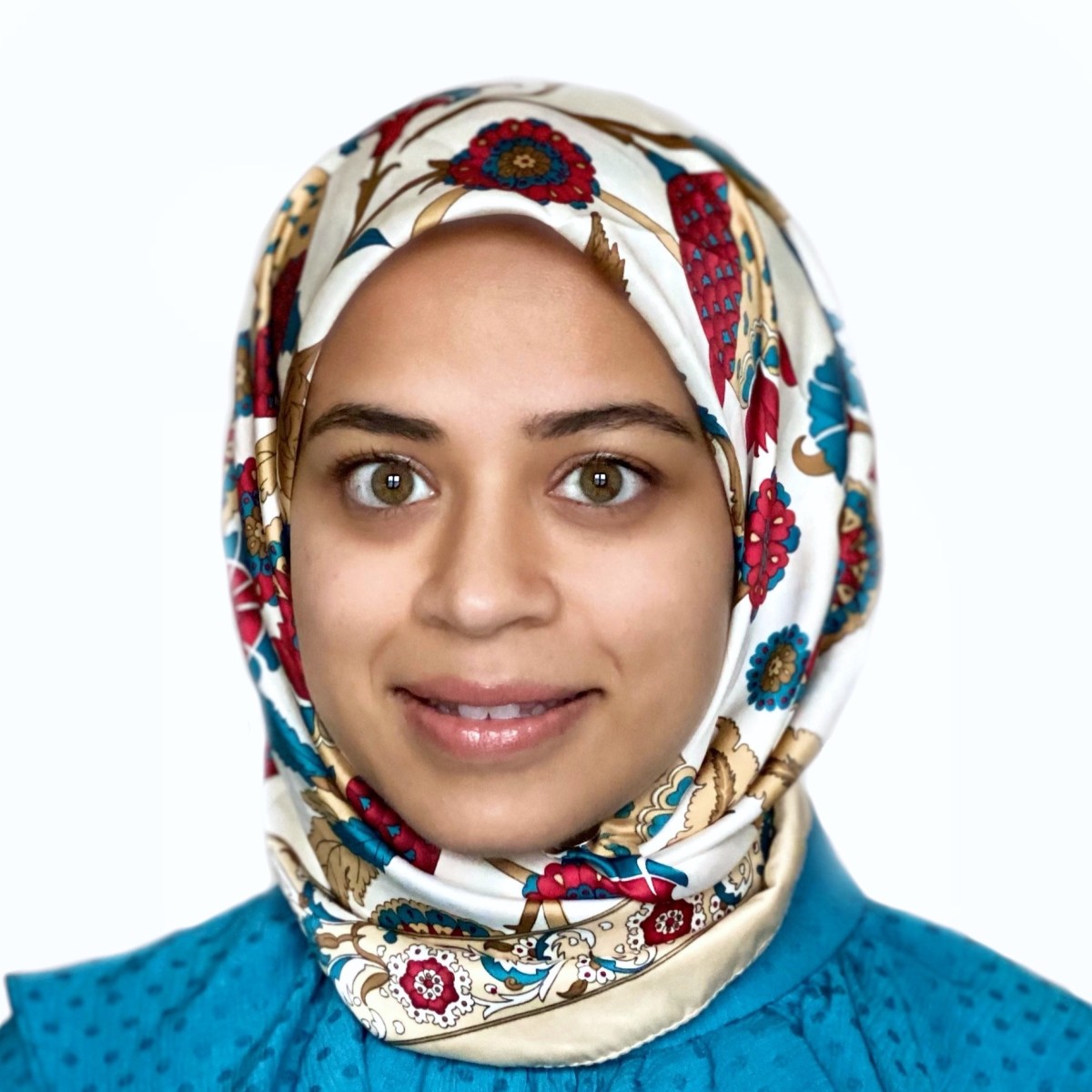
Which OTC Medications Are Safe for Dogs and Cats, and Which Ones Aren’t?
Key takeaways:
Some common human medications are also safe for dogs and cats, but a veterinarian should always provide the correct dose for those medications.
Human and animal medication doses are very different, so even if a medication is available over the counter, talk to your veterinarian before giving it to your dog or cat.
Many pet poisonings involve human medications. Medications that include Tylenol (acetaminophen) or decongestants are very harmful for pets.
Access savings on related medications
Table of contents

After a trip to the veterinarian, you may leave with instructions to give your pet medications to help treat their condition. Sometimes, these recommended medications may include ones available without a prescription. You might find this surprising, but several over-the-counter (OTC) “human medications” also work for cats and dogs.
Even though these products are available without a prescription, OTC medications can cause toxic effects in pets if not used correctly. Always speak with your veterinarian before giving these medications to your pets. In this article, we discuss some of the most common OTC medications and whether they are safe to use for your cat or dog.
Can you use hydrocortisone cream on dogs and cats?
Hydrocortisone cream, when used sparingly, can be safe for dogs and cats. It may be an option to relieve your cat or dog’s itching. OTC hydrocortisone is a mild corticosteroid that helps reduce swelling, redness, and itchiness. It’s readily available and inexpensive.
Save on the top 10 pet medications
Save big on common pet medications like Fluoxetine and Levetiracetam at your local pharmacy.

GoodRx is NOT insurance. GoodRx Health information and resources are reviewed by our editorial staff with medical and healthcare policy and pricing experience. See our editorial policy for more detail. We also provide access to services offered by GoodRx and our partners when we think these services might be useful to our visitors. We may receive compensation when a user decides to leverage these services, but making them available does not influence the medical content our editorial staff provides.
Only apply hydrocortisone cream to your pet once or twice a day. But double-check with your vet if you’re unsure how long you should use it on your dog or cat. It’s best to avoid hydrocortisone sprays or gels that contain alcohol when it comes to cats. Alcohol can be harmful to them if they lick it off their skin.
Keep in mind that hydrocortisone cream should be a temporary solution until your vet can figure out why your pet is itchy. Sometimes, itching is caused by fleas or ticks. Discuss preventive pest control options with your vet at your next visit if you haven’t yet.
How will hydrocortisone cream affect my pet?
Hydrocortisone cream usually works within an hour or two to stop itching and scratching. Try to prevent your cat or dog from licking the spot where you applied the medication for at least a half-hour.
It’s important not to use this medication for too long, as it does have some risks. Corticosteroid creams can delay wound-healing or lead to skin-thinning over time. If your pet’s itching or skin patches do not improve after a few applications, contact your veterinarian.
Call for emergency help: If you’re concerned your pet ate something they shouldn’t, call your veterinarian or a local emergency clinic. You can also call a pet poison hotline.
Be careful with essential oils: We humans love the smell of essential oils, but are they safe for pets? Not really, so use caution when using essential oils around your cat or dog.
Safely keep pests away: Don’t let fleas and ticks take over your pet; get them on a regular flea and tick prevention medication!
Is Benadryl safe for cats and dogs?
Benadryl (diphenhydramine) can be safe for cats and dogs when used carefully with instruction from your veterinarian. It’s an antihistamine used to help with mild allergies and allergic reactions. Benadryl is also used to prevent motion sickness in dogs during travel and for mild anxiety relief in both dogs and cats.
Many human OTC products combine Benadryl with decongestants such as pseudoephedrine (Sudafed) or phenylephrine. Decongestants are unsafe for pets, so read all labels carefully to ensure the product only has diphenhydramine listed in the active ingredients.
Do not give Benadryl to dogs or cats who are pregnant or those who have glaucoma, high blood pressure, or other heart conditions.
How will Benadryl affect my pet?
Benadryl should work within 1 to 2 hours to relieve allergy symptoms and wear off within 24 hours. The most common side effect is drowsiness, but some dogs and many cats can actually become more excited after a dose.
If your pet takes medication to treat seizures or improve mood, this sleepy feeling may be more noticeable or last longer. Dry mouth, less-frequent urination, and lower appetite are also common side effects.
Always check with your pet’s veterinarian about the dose you should give. Do not follow the human directions on the OTC packaging, as pet instructions will most likely be very different. Too much Benadryl can lead to trouble breathing, coma, seizures, or even death.
Read more like this
Explore these related articles, suggested for readers like you.
Are there other antihistamines for pets?
Dramamine is another antihistamine that can relieve dizziness or help prevent motion sickness. Its side effects are similar to those of Benadryl. Several second-generation antihistamines, such as Zyrtec and Claritin, also work well in pets and may cause less drowsiness. Ask your vet which type of antihistamine would be the best option for your pet’s condition.
Can you give cats and dogs aspirin? Or other nonsteroidal anti-inflammatory drugs?
Some types of aspirin and other nonsteroidal anti-inflammatory drugs (NSAIDs) can be used safely in dogs. But you should not give your cat any OTC aspirin or other type of OTC pain relievers.
In dogs, NSAIDs can sometimes be used to relieve mild pain and inflammation, such as with arthritis. Usually, veterinarians prescribe pain relievers that are FDA-approved to use in cats and dogs, because many human NSAIDs are dangerous for our furry friends.
But there are a few things to know if you’ve been told to give your four-legged companion OTC aspirin or other NSAIDs.
Aspirin and other NSAIDs for cats
Cats should never be given aspirin, except in rare situations when your veterinarian may prescribe it for heart disease. But unless your veterinarian specifically recommends aspirin, don’t give it to your cat. Cats are sensitive to this medication, and it can have toxic effects quickly.
In general, cats are more sensitive to the side effects of NSAIDs, even medications designed specifically for cats. So even if your cat is prescribed an NSAID such as meloxicam, your veterinarian will probably only want your cat to take it for a short period of time.
Aspirin for dogs
Aspirin can be safe for dogs. Ask your vet which type of aspirin you should use. While the safety-coated (also called enteric-coated) versions help protect human stomachs, they can prevent dogs from properly digesting it.
Since plain tablets can be very irritating to your dog’s stomach, your veterinarian might recommend something called buffered aspirin. Buffered aspirin can provide stomach protection for your dog while still allowing them to absorb the medication correctly.
Aspirin can also have serious interactions with other medications your dog may already be taking. Always share the full list of medications your dog or cat is using with your vet at every visit, so they can double-check for interactions. It’s important to stop giving your pet aspirin at least 3 days before any surgery to help prevent bleeding complications.
Ibuprofen and other NSAIDs
Other NSAIDs that are available OTC for humans can be dangerous for cats and dogs. Do not give other NSAID medications to your cat, including ibuprofen (Advil or Motrin) or naproxen (Aleve).
Many of these human NSAIDs have a sweet outer coating that is enticing for pets to eat, so keep all medications in a secure place where animals cannot get to them.
How will NSAIDs affect my pet?
Your dog should experience pain relief within 1 to 2 hours of an aspirin dose. While vomiting and diarrhea are common side effects of NSAIDs, contact your vet if either of these fluids is bloody or if your dog’s stools are suddenly very dark in color.
If your pet is inactive, not eating, feels very cold, or you see yellowing of their eyes, stop giving them the medication and seek immediate medical help.
NEVER give pain relievers to your pets without your vet’s permission. And be sure to ask them for a specific dose, as it will probably be different from what’s listed on the human OTC label.
Which heartburn medications are safe for dogs and cats?
Pepcid (famotidine) and Prilosec (omeprazole) are two human OTC heartburn medications that can be safe to give to your dog or cat. Just keep in mind that the dose you’ll give your dog or cat will likely be different from what you would take as a human.
Pepcid is a commonly prescribed heartburn medication to relieve tummy troubles for dogs and cats. Pepcid lowers the amount of stomach acid the body makes and helps relieve acid reflux. This medication works best before the first meal of the day on an empty stomach. Pepcid should start working within 1 to 2 hours.
Prilosec is another popular type of human heartburn medication. Prilosec treats heartburn and ulcers in dogs and cats. Do not crush Prilosec or allow your pet to chew this medication. It has a special coating so it can last throughout the whole day. It’s best to give Prilosec to your pet in the morning on an empty stomach before their first meal of the day. The medication should start working within 1 to 2 days.
Common antacids (Tums, Rolaids, Mylanta) can also help with stomach ulcers in pets, but they need to be given many times a day to work. Speak with your vet about how much to give your dog or cat, as it will most likely be different from the human dose listed on the package. Side effects can differ depending on the type of antacid your pet is taking, but diarrhea or constipation are possible.
How will heartburn medications affect my pet?
All of these medications can affect how other medications are absorbed by your pet’s body. Definitely ask your veterinarian if there are any drug interactions you should be concerned about.
Diarrhea and a decreased appetite are possible side effects for cats and dogs taking Pepcid or Prilosec. But these medications generally don’t cause many side effects. If you notice excessive sleepiness or vomiting after starting your dog or cat on an antacid, contact your vet right away.
Are over-the-counter antibiotics safe for cats and dogs?
The only antibiotics available OTC are topical. These are medications that you apply directly to the skin. Some topical antibiotics can be safe for dogs and cats when used on their skin. But they have risks if your pet consumes them, especially in cats.
One topical antibiotic is Neosporin, which can sometimes be used safely to treat minor cuts on your dog. However, make sure your dog or cat does not eat the medication. If your dog or cat does ingest Neosporin, it can cause symptoms of toxicity, such as:
Loss of appetite
Diarrhea
Vomiting
Drooling
Tremors
Because cats groom themselves often, they’re more likely to ingest topical medications. So it’s best to never use Neosporin or other topical antibiotics on cats.
Which OTC medications are not safe for dogs and cats?
Several OTC medications and their ingredients can be dangerous for dogs and cats. Here are some of the most commonly used human medications that can be toxic to our furry friends. Just keep in mind that this list does not include all the OTC medications and ingredients that can be harmful to your dog or cat.
Medication | Whom is it unsafe for? | What can happen? |
Acetaminophen (Tylenol) | Dogs and cats | Liver failure Death |
Ibuprofen (Advil, Midol, or Motrin) | Dogs and cats | Lack of appetite Abdominal pain Vomiting Diarrhea Ulcers |
Decongestants (Sudafed) | Dogs and cats | Seizures |
Medications that include alcohol | Dogs and cats | Seizures Trouble breathing Death |
Medications flavored with chocolate | Dogs and cats | Vomiting Diarrhea Tremors Heart failure Seizures Death |
Medications flavored using xylitol (artificial sweetener) | Dogs | Life-threatening low blood sugar Liver toxicity |
Cats | Bloody stools Dehydration Death | |
Cats | Tremors Death |
What should you do if you accidentally give your cat or dog an unsafe OTC medication?
If you believe your pet has accidentally swallowed a toxic medication or received an overdose of a medication, get help as soon as possible. Call your pet’s veterinarian, a local animal emergency treatment center, or a pet poison control hotline:
ASPCA Animal Poison Control Center: Call 1-888-426-4435. Fees may apply.
Pet Poison Helpline: Call 1-855-764-7661. A fee may apply.
Frequently asked questions
No. Decongestants are never safe for cats and dogs. Human decongestants such as pseudoephedrine (Sudafed) are toxic to dogs and cats. These medications can cause symptoms including:
Restlessness
Hyperactivity
Tremors
Irregular heart rhythms
High blood pressure
Human saline solutions can work for pets to treat mild eye allergies, loosen dirt or debris stuck in the eye, or prevent tear stains. But there are pet-specific eyewash pads, wipes, and gels that make it easier to clean your pet’s eyes. Some pet-specific saline washes also contain antimicrobial ingredients. Avoid using human contact lens solution on pets, as it may irritate their eyes.
Store all medications safely in a secured container or lockbox out of reach of pets. Dogs and cats often swallow human medications out of curiosity or because of their flavoring. Rattling pill bottles can also sound like pet toys, so it may be tempting for a pet to get into medications they should not consume.
The bottom line
Before giving an OTC medication meant for humans to your dog or cat, talk with your veterinarian about dosing instructions. Although OTC medications are available without a prescription, human doses can often be harmful to animals, and some products should never be given to them.
After giving any medication to your pet, watch them for side effects, bad reactions, or worsening of their condition. If you are ever concerned about how an OTC medication is affecting your furry friend, stop giving the medication and call your veterinarian right away.
Why trust our experts?



References
American College of Veterinary Ophthalmologists. (2020). How to clean your pet's eyes.
American College of Veterinary Pharmacists. (2015). Bismuth subsalicylate.
American College of Veterinary Pharmacists. (2015). Aspirin.
Burke, A. (2024). Aspirin for dogs: Uses, side effects, and alternatives. American Kennel Club.
Dowling, P. M., et al. (2011). Drugs used to treat digestive disorders. Merck Veterinary Manual.
Gelatt, K. N. (2018). Disorders of the nasal cavity and tear ducts in cats. Merck Veterinary Manual.
Gollakner, R. (n.d.). Diphenhydramine. VCA Animal Hospitals.
Gollakner, R. (n.d.). Famotidine. VCA Animal Hospitals.
Gollakner, R. (n.d.). Hydrocortisone topical. VCA Animal Hospitals.
Gollakner, R. (n.d.). Omeprazole. VCA Animal Hospitals.
Gwaltney-Brant, S. M. (2013). Alcohols. Merck Veterinary Manual.
Hyland, K., et al. (n.d.). Aspirin. VCA Animal Hospitals.
Khan, S. A. (2014). Decongestants (toxicity). Merck Veterinary Manual.
Mueller, R. S. (2007). Treatment of pruritus. Dermatology for the Small Animal Practitioner.
Pet Poison Helpline. (n.d.). Acetaminophen.
Pet Poison Helpline. (n.d.). Antibiotics.
Pet Poison Helpline. (n.d.). Decongestants.
Pet Poison Helpline. (n.d.). Is alcohol poisonous to dogs?
Pet Poison Helpline. (n.d.). My cat ate Neosporin. Will they be okay?
Pet Poison Helpline. (n.d.). My dog ate Neosporin – is it safe?
Pet Poison Helpline. (n.d.). Pyrethrins & pyrethroids.
U.S. Food & Drug Administration. (2021). Paws off xylitol; it's dangerous for dogs.
U.S. Food & Drug Administration. (2022). Get the facts about pain relievers for pets: Nonsteroidal anti-inflammatory drugs (NSAIDs).
Wismer, T. (2018). Common household items can poison pets. Veterinary Partner.


























